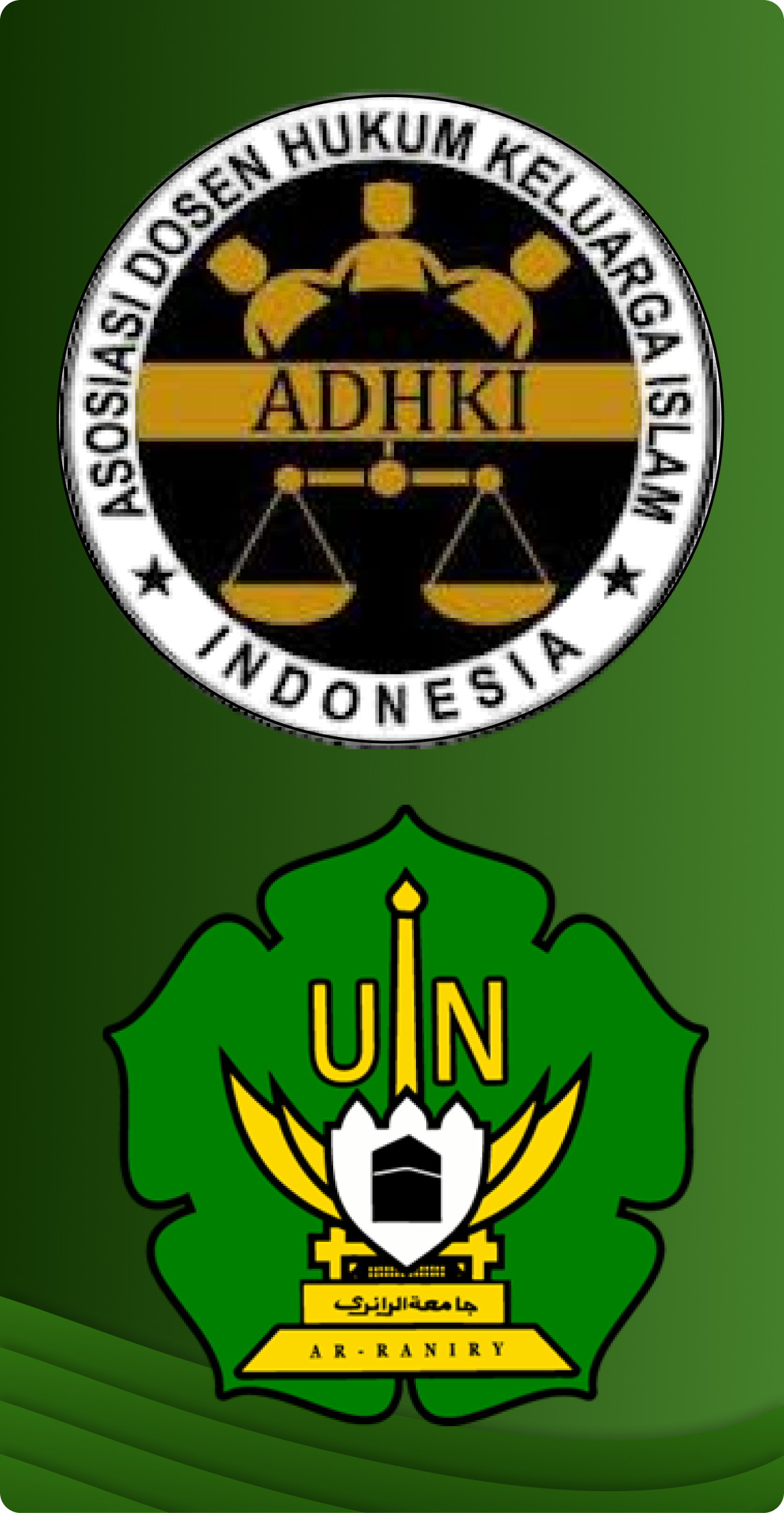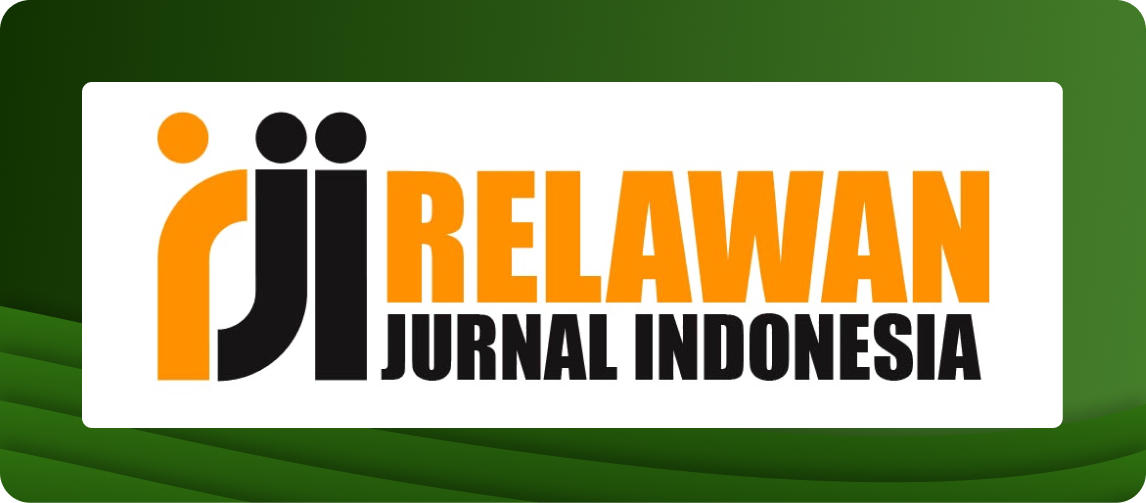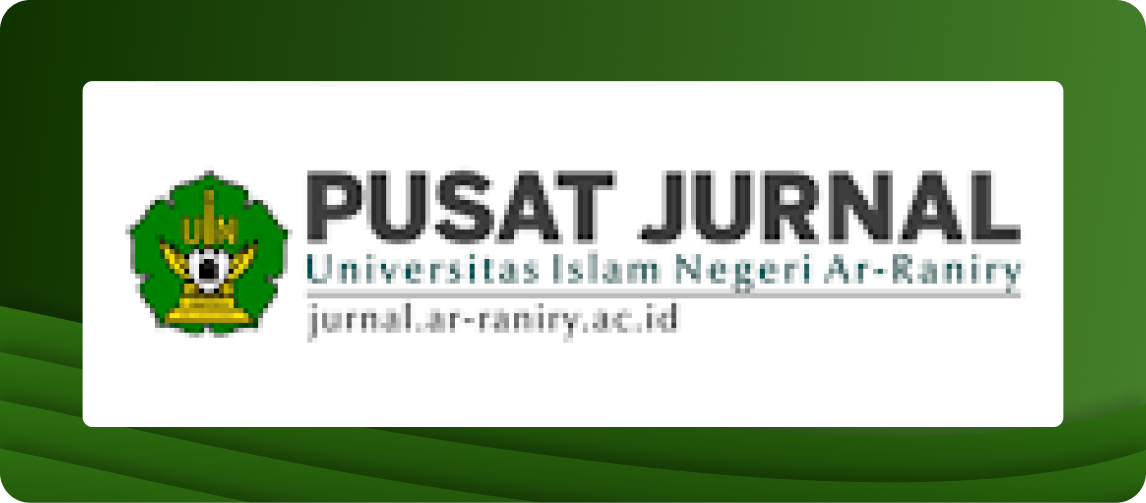Strengthening the Role of BPRS in Supporting MSMEs
Regulatory Perspective and Legal Challenges During and After the Pandemic
DOI:
https://doi.org/10.22373/4dn5e614Keywords:
BPRS, Economic Growth, Covid-19 PandemicAbstract
This study examines the strategic role of Sharia People's Financing Banks (BPRS) in supporting micro, small and medium enterprises (MSMEs) as a driver of Indonesia's economic recovery in the aftermath of the Covid-19 pandemic. Despite having a smaller share of total financing than Islamic Commercial Banks, BPRS plays a crucial role in reaching underserved microeconomic segments. Previous studies have shown that MSMEs are the backbone of the Indonesian economy, yet their access to financing remains limited. This research uses a qualitative method with a field approach through observation, in-depth interviews, and document analysis in selected regions. The findings show that BPRS financing has significantly contributed to MSME resilience and job creation, yet the sector still faces regulatory and policy challenges. Therefore, optimizing BPRS’ contribution requires legal frameworks that support risk mitigation, sustainability, and inclusive economic growth.
References
Journal and Books
Abu Hamid al-Ghazali, Ihya’ Ulumuddin. Jilid III (Beirut: Dar Al-Fikr, 1989), Lihat Pada Bab Kebahagiaan Dan Kehidupan Baik., 1989.
Akhmad, Taufik. “Dampak Pandemi Covid-19 Terhadap Pertumbuhan Ekonomi Indonesia Dan Solusi Mengatasinya.” Muttaqien; Indonesian Journal of Multidiciplinary Islamic Studies 3, no. 1 (2022): 67–77. https://doi.org/10.52593/mtq.03.1.05.
Beck, Thorsten, Asli Demirgüç-Kunt, and Ouarda Merrouche. “Islamic vs. Conventional Banking: Business Model, Efficiency and Stability.” Journal of Banking and Finance 37, no. 2 (2013): 433–47. https://doi.org/10.1016/j.jbankfin.2012.09.016.
———. “Islamic vs. Conventional Banking: Business Model, Efficiency and Stability.” Journal of Banking and Finance 37, no. 2 (2013): 433–47. https://doi.org/10.1016/j.jbankfin.2012.09.016.
Boediono. Ekonomi Indonesia. Bandung: Mizan, 2017.
BRS. “Berita Resmi Statistik.” Bps.Go.Id 19, no. 27 (2020): 1–8. https://jakarta.bps.go.id/pressrelease/2019/11/01/375/tingkat-penghunian-kamar--tpk--hotel--berbintang-dki-jakarta-pada-bulan-september-2019-mencapai-58-97-persen.html.
Dusuki, Asyraf Wajdi, and Abdulazeem Abozaid. “A Critical Appraisal On The Challenges Of Realizing Maqasid Al-Shariaah In Islamic Banking And Finance.” IIUM Journal of Economics and Management 15, no. 2 (2007): 999–1000. https://doi.org/10.2307/1236148.
Fahrika, a Ika, and Juliansyah Roy. “Dampak Pandemi Covid 19 Terhadap Perkembangan Makro Ekonomi Di Indonesia Dan Respon Kebijakan Yang Ditempuh.” Inovasi 16, no. 2 (2020): 206–13. https://doi.org/10.29264/jinv.v16i2.8255.
Haryanto, Sugeng. “Profitability Identification of National Banking Through Credit , Capital , Capital Structure , Efficiency , and Risk Kredit , Permodalan , Struktur Modal , Efisiensi Dan Tingkat.” Jurnal Dinamika Manajemen 7, no. 1 (2016): 11–21.
Hassan, M. Kabir, and Sirajo Aliyu. “A Contemporary Survey of Islamic Banking Literature.” Journal of Financial Stability 34 (2018): 12–43. https://doi.org/10.1016/j.jfs.2017.11.006.
Ii, B A B. “Mardani, Aspek Hukum Lembaga Keuangan Syariah Di Indonesia , (Jakarta: Kencana, 2017), Hlm 1. 1 13,” n.d., 13–22.
Jhingan, M. L. The Economics of Development and Planning. Delhi: Vrinda Publications, 2006.
Kammer, Alfred, Mohamed Norat, Marco Piñón, Ananthakrishnan Prasad, and Christopher Towe. “Islamic Finance : Opportunities , Challenges , and Policy Options,” n.d.
Kuncoro, Mudrajad. Ekonomi Pemba‐ Ngunan: Teori, Masalah Dan Kebijakan. Yogyakarta: UPP AMP YKPN, 2003.
Kuznets, Simon. Modern Economic Growth: Rate, Structure and Spread. New Haven: Yale University Press, 1966, n.d.
Listiadi, Agung. “Pengaruh Kinerja Keuangan Terhadap Nilai Perusahaan Sebagai Manifestasi Pembelajaran Investasi.” Jurnal Ekonomi Pendidikan Dan Kewirausahaan 3, no. 2 (2017): 197. https://doi.org/10.26740/jepk.v3n2.p197-213.
Mardhiyaturrositaningsih. “Kinerja Perbankan Syariah Di Masa Pandemi Covid-19 : Studi Kasus Pada BPRS Di Jawa Barat,” no. June (2021): 92–112.
Nugroho, Lucky, Wiwik Utami, Citra Sukmadilaga, and Tettet Fitrijanti. “The Urgency of Allignment Islamic Bank to Increasing the Outreach (Indonesia Evidence).” International Journal of Economics and Financial Issues 7, no. 4 (2017).
Oktania, Beby, Putri Kusnadi, and Yuliastuti Rahayu. “Perspektif Balanced Skorecard Sebagai Pengukuran Kinerja Organisasi.” Jurnal Ilmu Dan Riset Akuntansi 10, no. 1 (2021).
Palmer, Tom G. And Economic, n.d.
Rifa’i, and Achmad. “Peran Bank Pembiayaan Rakyat Syariah Dalam Mengimplementasikan Keuangan Inklusif Melalui Pembiayaan UMKM Achmad Rifa ’ i Latar Belakang Indonesia Merupakan Salah Satu Negara Yang Diprediksi Beberapa Tahun Mendatang Akan Menjadi Bagian Dari 5 Besar Negara.” Journal of Islamic Economics and Business 2, no. 2 (2017): 177–200. https://doi.org/10.24042/febi.v2i1.943177177.
Samad, Abdus, and M Kabir Hassan. “The Performance of Malaysian.” International Journal of Islamic Financial Services 1, no. 3 (2006).
Setiawan, Mahbub. Islamisasi Nusantara: Dari Episteme Ke Rezim Kebenaran. Jawa Timur: Academia Publication, 2023.
Siti Zulaikha, Mauizhotul Hasanah, Faris Kurnia Hakim,. “The Effect of Islamic Rural Banks (BPRS) on Regional Economies in Java.” Jurnal Ekonomi 24, no. 2 (2019): 256. https://doi.org/10.24912/je.v24i2.590.
Smith, Adam. An Inquiry Into the Nature and Causes of the Wealth of Nations. London: W. Strahan and T. Cadell, 1809, n.d.
Sofyan, Mohammad. “Kinerja BPR Dan BPRS Pada Masa Pandemi COVID-19.” The 2nd Seminar Nasional ADPI Mengabdi Untuk Negeri Pengabdian Masyarakat Di Era New Normal 2, no. 2 (2021): 6–12. https://www.researchgate.net/profile/Mohammad-Sofyan-2/publication/349255915_Kinerja_Bpr_Dan_Bprs_Pada_Masa_Pandemik_Covid-19/links/602701c9a6fdcc37a8219632/Kinerja-Bpr-Dan-Bprs-Pada-Masa-Pandemik-Covid-19.pdf.
Tanjung, H., Perwaatmadja, dan Karnaen, A. Bank Syariah: Teori, Praktik, Dan Peranannya. Jakarta: Celestial Publishing, 2007.
Thaha, Abdurrahman Firdaus. “Dampak Covid-19 Terhadap UMKM Di Indonesia [The Impact of Covid-19 on MSMEs in Indonesia].” Jurnal Brand 2, no. 1 (2020).
Tisdell, Sharan B., Merriam, and Elizabeth J. Qualitative Research: A Guide to Design and Implementation. San Francisco: John Wiley & Sons, 2015.
Todaro, Michael P. and Smith, Stephen C. Economic Development. UK: Pearson Education Limited, 2003.
Trimulato, Trimulato. “The Role Of Sharia Banking To Recover SMEs During Covid-19 Pandemic.” Al-Masharif: Jurnal Ilmu Ekonomi Dan Keislaman 9, no. 1 (2021): 58–75. https://doi.org/10.24952/masharif.v9i1.3851.
Wibowo, Joko. “Pengaruh Insentif Finansial Dan Non Finansial Terhadap Kepuasan Kerja Dan Kinerja Karyawan (Riset Empiris Pada Karyawan BRI Wilayah Kantor Cabang Sleman Yogyakarta).” Jurnal Bisnis Teori Dan Implementasi (JBTI) 6, no. 2 (2015).
Yustika Devi, Laksmi, Yuni Andari, Latri Wihastuti, and Kun Haribowo. “Model Sosial-Ekonomi Dan Ketahanan Pangan Rumah Tangga Di Indonesia.” Jurnal Ekonomi Dan Pembangunan 28, no. 2 (2020): 103–15. https://doi.org/10.14203/jep.28.2.2020.103-115.
Zainul Bahri and Vinni Aprilianti. “Menuju Kesejahteraan Berkelanjutan Pemahaman Terhadap Pertumbuhan Ekonomi Klasik, Neoklasik, Islam, Green Economy, Dan Blue Economy, p. 9; See Also Allya Salsa Bilatul Kh, Diajeng Anugrah Cantika Sari, and Fatkurohman Nur Rangga, “Modernisasi Melalui Pemb.” Makassar: Nas Media Pustaka, 2023.
Zuhdi, Zaenu. “Pertumbuhan Ekonomi Dalam Perspekif Ekonomi Islam.” Iqtishoduna 3, no. 2 (2011). https://doi.org/10.18860/iq.v3i2.255.
Downloads
Published
Versions
- 2025-06-30 (2)
- 2025-06-30 (1)
Issue
Section
License
Copyright (c) 2025 Ridwansyah Ridwansyah, Okta Supriyaningsih, Dania Hellin Amrina

This work is licensed under a Creative Commons Attribution-ShareAlike 4.0 International License.
Authors who publish in El-Usrah: Jurnal Hukum Keluarga agree to the following terms:
Authors retain copyright and grant the journal right of first publication with the work simultaneously licensed Attribution-ShareAlike 4.0 International (CC BY-SA 4.0) that allows others to share the work with an acknowledgment of the work's authorship and initial publication in this journal.
Authors are able to enter into separate, additional contractual arrangements for the non-exclusive distribution of the journal's published version of the work (e.g., post it to an institutional repository or publish it in a book), with an acknowledgment of its initial publication in this journal.
Authors are permitted and encouraged to post their work online (e.g., in institutional repositories or on their website) prior to and during the submission process, as it can lead to productive exchanges, as well as earlier and greater citation of published work. (See The Effect of Open Acces)

















